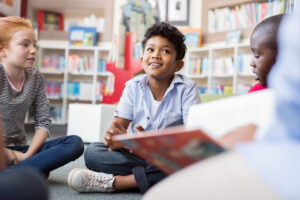Dyslexia is a common learning difference that affects the brain’s ability to process language. It most commonly results in difficulties with reading and writing, including spelling, word recognition, and decoding. Dyslexia can also cause problems with reading comprehension and math skills, but it does not affect intelligence or talent.
As time goes by, we’ve learned more about dyslexia and the many gifts that come with it. So much so that recently, LinkedIn introduced a feature to add “dyslexic thinking” as a skill badge on their profiles. The aim is to recognize the gifts people with dyslexia can bring to their work. Let’s explore some of these so-called “gifts of dyslexia.”
Gift #1: Greater Problem-Solving Skills
Dyslexic thinking can help one think more creatively. Because people with dyslexia think “outside the box” to solve problems, they can often see things from a different perspective and come up with unique solutions. People with dyslexia are often very creative and imaginative, over time, as they find creative ways to fight personal obstacles, they develop outstanding problem-solving skills.
Because people with dyslexia view things differently than others this can help them excel in fields such as science or engineering, where problem-solving skills are critical.
Gift #2: Expansive Creativity
While dyslexia can make school difficult, it also gives people with dyslexia a unique way of seeing the world. They may think in pictures, which helps them visualize things in ways others may not. People with dyslexia often have incredible imaginations and are great artists and musicians — they use their minds differently from others, so their art is truly original! If you know someone who is creative but struggles with spelling or reading, try finding ways for them to express themselves through drawing or music.
For example, a person with dyslexia might be able to visualize how a building would look if it were turned upside down. This kind of thinking is excellent for people who want to be architects or engineers.
Gift #3: Great Visual Memory
Various studies have shown people with dyslexia are able to recall images and pictures better than non-dyslexic individuals. This might be the result of overly active visual cortexes in dyslexic individuals. These areas of the brain are connected to memory and memory retrieval of visual information. This is also why often people with dyslexia have a better memory of pictures than words. And it’s also why oftentimes dyslexics are touted as being visual thinkers.
There are many career paths in which visual memory can come in handy, such as photography, architecture, visual arts, astronomy, and even physics.
Gift #4: Amazing Puzzle-Solving Skills
People with dyslexia thrive in a stimulating environment. They’re able to see things in a more holistic way to quickly identify missing components. This wide-angle lens way of seeing things makes people with dyslexia have an innate ability to analyze complex problems and quickly identify a comprehensive solution.
Their problem-solving skills enable them to be excellent candidates for career paths that require making sense of enormous quantities of visual data such as researchers, air traffic controllers, and chemists.
Gift #5: Innate Ability to Connect With Others
It’s said that people with dyslexia have an amazing ability to sense, understand, and respond to how people feel. Having higher emotional intelligence helps them develop remarkable intuitive abilities, including reading body language and facial expressions. People with dyslexia also have a broader sense of social awareness and can easily connect with others at a deeper level. This allows them to see beyond their own concerns and observe and notice others that may need help or assistance.
The great ability people with dyslexia have to connect with others makes them outstanding therapists, nurses, doctors, and social workers.
Dyslexia can be a gift for many children and adults.
While it can be challenging, there are so many positive aspects of having dyslexia. We encourage anyone who feels like their child might struggle with dyslexia or other learning disabilities to immediately talk to an expert and get appropriate support. You don’t need to feel alone in your struggles—many people understand what you’re going through.





